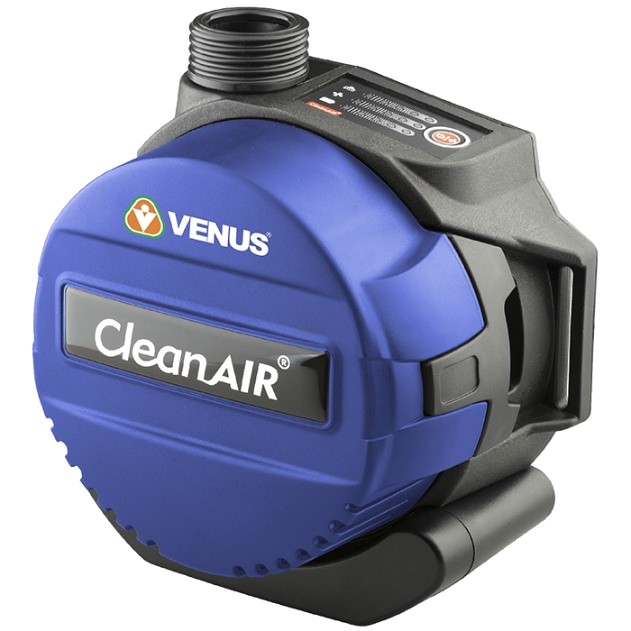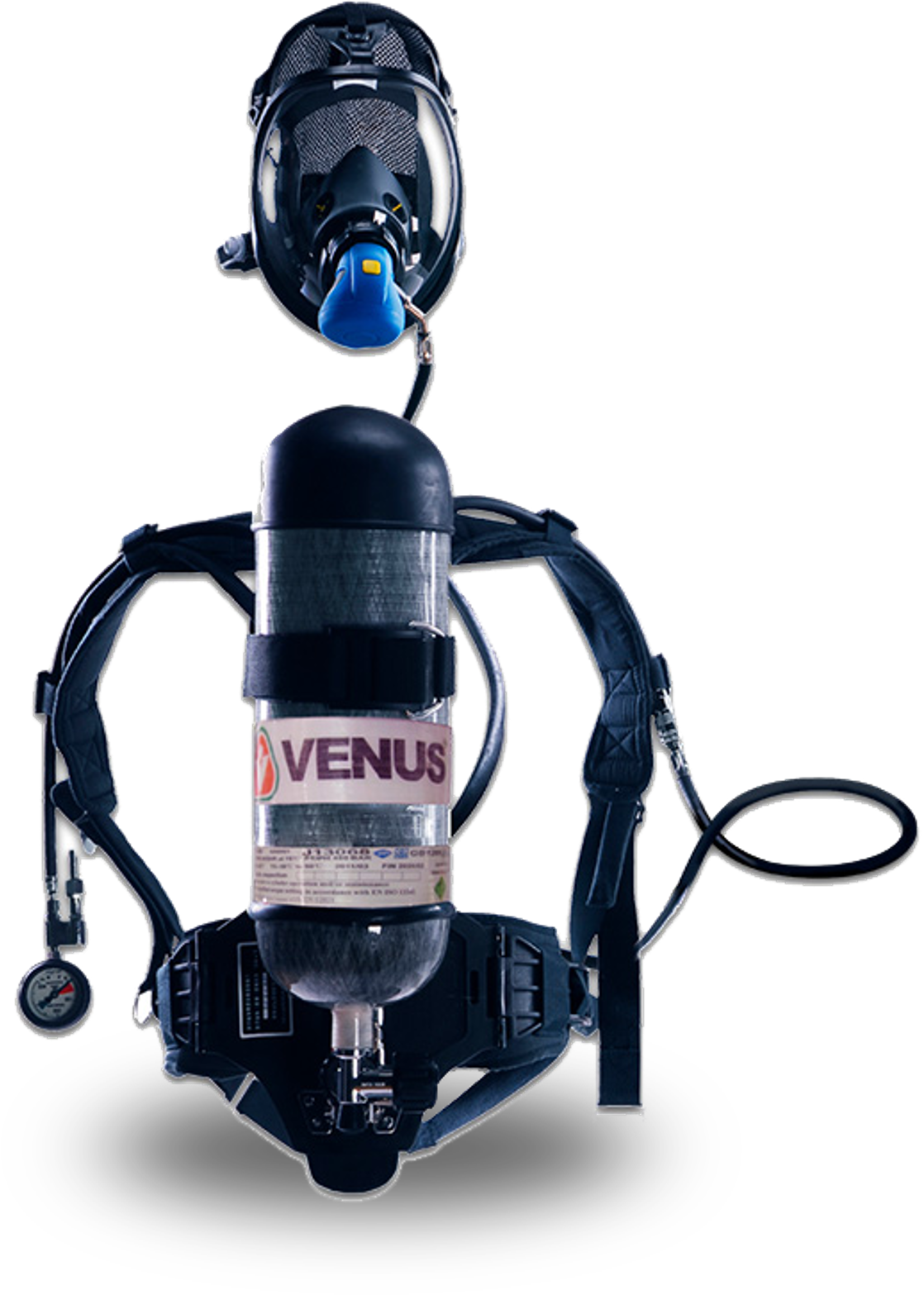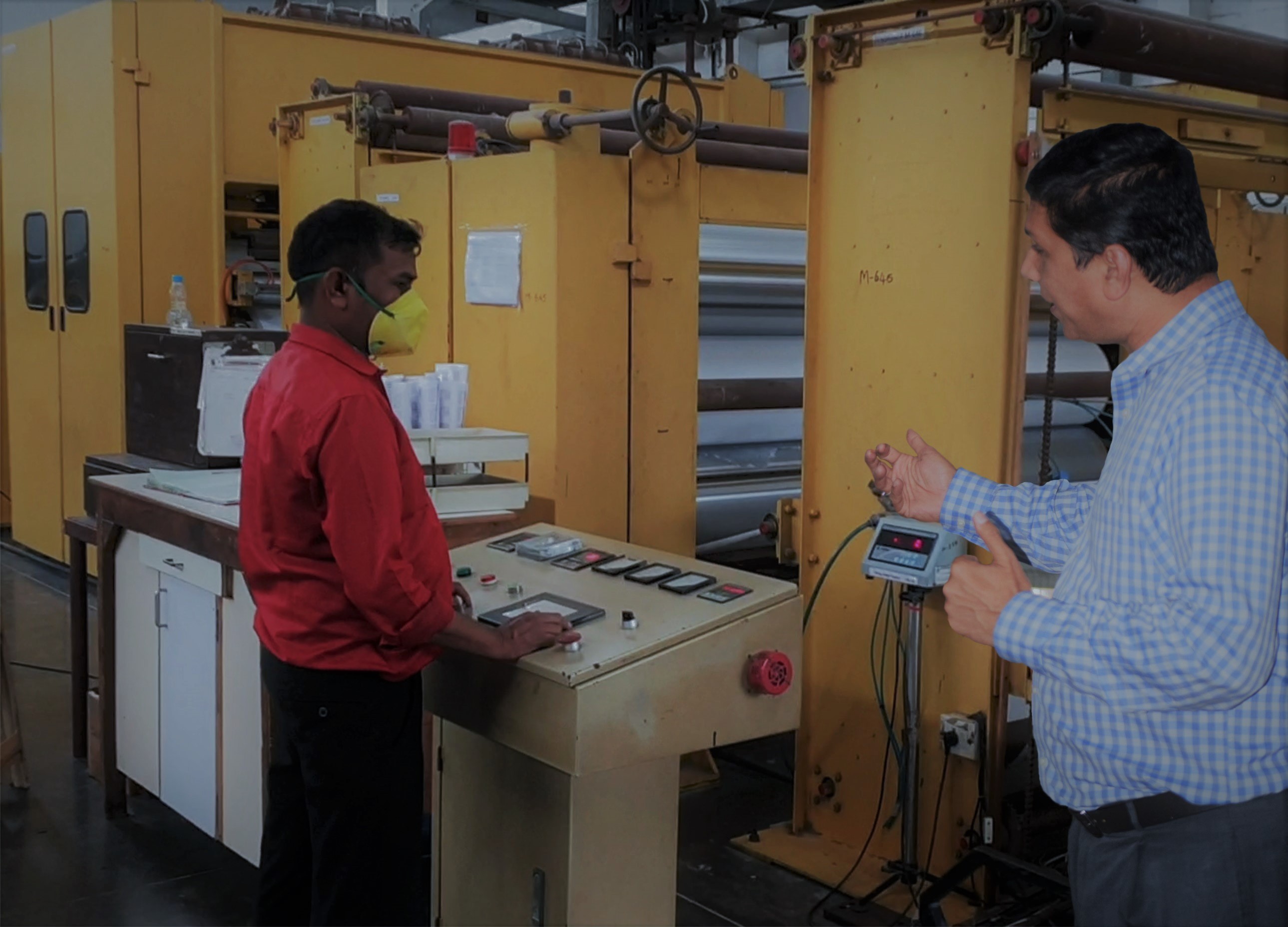
Mahesh Kudav, Managing Director, Venus Safety and Health Pvt. Ltd., for his valuable insights on the current state of the sector, his personal mantra and future plans and strategy for rising requirements
The market for industrial safety equipment in India is riding an encouraging wave with increasing demand for PPE across a cross section of industries and sectors. Figures have surpassed USD 841 million and expected to scale up to USD 1,690.6 million during the forecast period of 2024-2033 at a CAGR of 6.59%. With efficiency, reliability and productivity as key areas, India has been leveling to meet not just national requirements but global demands focused on environmental, social and governance initiatives.
Venus Safety and Health Pvt. Ltd. have been reigning the safety equipment manufacturing space in India since 1983. With a wide range of personal protective equipment, disposable and respirator masks, safety ear muffs, safety helmets, etc Venus has been maintaining quality products and emerged as a reliable name.
We spoke to Mahesh Kudav, Managing Director, Venus Safety and Health Pvt. Ltd., for his valuable insights on the current state of the sector, his personal mantra andfuture plans and strategy for rising requirements.
1. Post pandemic with a greater eye on the importance of safety and healthcare how has your company strategized to meet local and global consumer requirements and expectations as well as maintain standards and commitment to comfort and sustainability?
Post pandemic, Venus has strategically prioritized safety and healthcare, adapting to meet local and global consumer needs , maintaining our commitment to comfort and sustainability. We recognize the increasing demand for high-quality PPE and have enhanced our products to align with these expectations. We aim to invest in advanced technology to ensure that products not just meet but exceed safety standards, improve comfort levels of gears, incorporating a higher percentage of indigenous materials in our manufacturing process.
We are dedicated to strengthening our ESG (Environmental, Social, and Governance) initiatives, aiming to move towards a zero waste model, implement water recycling systems, groundwater recharge methods during monsoons and expand use of solar energy. For assessing our progress and areas for improvement, we are undertaking a voluntary 360-degree Zed / SEDEX Audit conducted by reputable agencies that will help us to become a better factory and employer.
We are committed to enhancing nutritional levels of our employees and fostering better work –life balance, for overall well being.
2. Research and Development and innovations are your core focus. How does Venus see the emergence of new technologies and its incorporation with the manufacturing process of safety devices and in the design of future products?
We are committed to ongoing investments in technology, encompassing machinery, equipment, and tools, to enhance the comfort and fire protection of our products. Focus will be increasing the indigenous content of our locally made products.
We plan to incorporate the IoT into our operations, explore potential applications of artificial intelligence, although timing and implementation remains to be finalized. We are digitizing processes and promoting digital adoption wherever feasible. Our goal is to achieve higher levels of process control and standardization, for consistent operations across all manufacturing aspects.
3. As regards to India's strong positioning in your sector, how do we fare when it comes to being seen as a strong competitive contender to manufacturing giants like China?
When it comes to product quality and competitiveness, I firmly believe India stands as a strong contender against manufacturing giants like China. India can further improve, particularly in scaling its volume manufacturing capabilities which would enable faster deliveries to meet customer demands more efficiently.
I also see an opportunity for India to focus more on ESG (Environmental, Social, and Governance) initiatives. As international customers increasingly seek products from developing nations that align with ESG standards, India's emphasis on sustainable practices will be key in fulfilling this demand and strengthening our global position.
4. How has Venus reacted to the introduction of the Quality Control Order in our country and how have you adapted to comply with the regulatory standards in your PPE sector?
The introduction of the Quality Control Order (QCO) for final products in material streams such as CPE is a welcome development, as it establishes essential standards. However, I believe that for raw materials, while QCO is beneficial, it should be implemented carefully. A hasty approach could adversely affect the quality of the final products as we face challenges of high quality materials available only with select global sources.
The Bureau of Indian Standards (BIS) approval is crucial for all manufacturers. We have consistently been obtaining approvals for all applicable standards in our manufacturing processes. Currently, we hold BIS approvals for 13 or 14 categories, and we are proud to be the first in the industry to achieve these certifications.
We are in the process of establishing an in house laboratory that shall be NABL accredited. This facility will not only assist manufacturers in testing their products against NABL standards to secure BIS approval but will also provide a suitable environment for pre-testing to streamline the approval process. This will enhance our capabilities and reinforce our commitment to quality and compliance in the PPE sector.

5. With rising levels of air pollution in our metros how do the disposable respirators of Venus address the growing demand for effective protection? What features give you an edge over your competitors?
Before the pandemic, we primarily had two standards: industrial particulate respirators and surgical masks.
Each served different applications but none were specifically meant to address pandemic scenarios. Fortunately, the Government of India and the Bureau of Indian Standards have introduced new standards that significantly improve these offerings.
Post-pandemic, two new standards have been adopted to enhance respiratory protection.
The first is the Medical Respirator standard, which mandates that products be lightweight while providing high levels of protection against liquid aerosols and with excellent bacterial filtration efficiency. This innovation is poised to transform the medical respirator market for healthcare workers, ensuring not only enhanced protection but also a user-friendly experience. We are focusing on developing disposable yet recyclable products, which will address concerns of healthcare industry environmentally.
Additionally, the new Barrier Protective Face Mask standard has been adopted for common wearer for road pollution – respiratory protection. This mask will be available in various calibrated protection levels and breathing comfort ratings, tailored to the user's life style—whether active or sedentary—and personalized based on factors such as age and facial small, medium or large structure. The Barrier Protective Face Mask represents a significant innovation, grounded in global standards, allowing users to select their desired level of protection, comfort, and design. It also offers opportunities with aesthetically pleasing designs, adding to its appeal.
6. Venus offers a wide gamut of industrial, medical and filtration solution products. What are the current trends driving the development of new product lines like V-900 half face mask and escape hood?
Venus’s objective is to develop more indigenous products using locally sourced raw materials that meet global approvals. We are particularly excited about introducing new products, such as gas masks available in various designs and styles to cater to different end-user segments. Also our self-contained breathing apparatuses SCBA for firefighters offer exceptional respiratory protection against high temperatures are highly reliable.
We increased the indigenization of components in these apparatuses from approximately 11% to nearly 80%, including the production of carbon composite cylinders and pressure regulators in India. We introduced a carbon monoxide filter that can be integrated into escape masks, and we are exploring how to position these products effectively across various industries, offices, hotels, and high-rise buildings, ensuring that people feel secure in urban spaces.
We are expanding our range of powered air-purifying respirators to meet national requirements. Our commitment to indigenization remains strong, with a significant percentage of our filters—both gas and particulate—designed to be innovative in nature. In industrial air filtration, we are introducing cabin air filters and spray booths, which have not been produced in India until now. We are launching HEPA air filters for operation theaters, pharmacies, and food and beverage manufacturing.
Looking ahead, we plan to introduce high-temperature filters, an area currently dominated by multinational companies, thereby enhancing our national manufacturing capabilities. In the medical sector, we aim to provide several types of filters specifically for ventilators. Our pandemic experience highlighted the critical need for timely filter changes in these devices to prevent fatalities, and we are committed to making these solutions available locally, reducing our reliance on import and save life & costs to our Nation.

7. You have spent a substantial time in the realm of PPE manufacturing. As a sector leader could you share your key learning or experiences that molded your leadership, vision and style for your company?
With nearly four decades of experience in PPE manufacturing and marketing, we have navigated both challenging and prosperous times in this industry, which has provided us with invaluable insights. Here are some key lessons I’ve learned:
First, it's essential to think globally while acting locally. We must prioritize making products accessible to local industries while simultaneously ensuring they meet global quality standards and approval requirements.
Second, obtaining global approval should start with securing local certifications. It’s crucial to continuously refine our products to align with customer needs. Without which even approved products may struggle with long-term acceptance in the market.
Third, we must focus on creating employment opportunities. India is rich in young talent, and by fostering employment for these skilled individuals, we not only enhance the value of our company but also elevate our nation's international standing.
Finally, it is vital to stay grounded in the manufacturing sector. Although the PPE industry offers high growth potential, particularly through exports, the profit margins can be narrow. Success in exports requires significant perseverance and patience. These principles have shaped my leadership approach and vision for the company.

8. What is your mantra or motivation to steer Venus Safety towards continuous growth, innovation and how do you see the company evolving in the next 5-7 years in a post pandemic scenario?
Our vision is to become a leader both globally and domestically, in terms of our product offerings, visibility and market share within our sector. This will be our guiding principle in the post-pandemic landscape.
Over the next few years, I believe there will be significant opportunities for manufacturers and producers in India, particularly due to the initiatives taken by our Prime Minister. His efforts have strengthened India’s reputation and fostered balanced, multi-polar relationships with nations worldwide. We intend to capitalize on this momentum to expand our export capabilities, enabling us to reach markets across the globe. This strategic positioning will be central to our mantra moving forward.